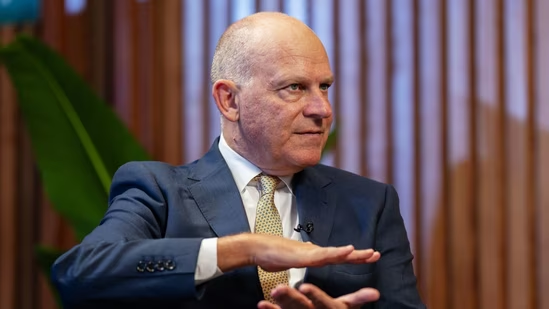
Air India
New Delhi, July 14, 2025 – Air India’s Managing Director and CEO Campbell Wilson has responded firmly to the Aircraft Accident Investigation Bureau’s (AAIB) preliminary findings on the June 12 crash of flight AI 171 near Ahmedabad, stating there are no mechanical or maintenance faults in the Boeing 787‑8 Dreamliner involved.
Early Findings from AAIB
The AAIB’s initial report, released on July 11, concluded that the aircraft’s engine fuel cutoff switches were inadvertently flipped almost simultaneously soon after takeoff, cutting off fuel to both engines. The report did not identify any mechanical defects, maintenance negligence or fuel quality issues. It did not assign causation or prescribe manufacturer-specific action for Boeing or GE engines
.
Wilson’s Clarifying Message to Employees
In an internal memo—which was shared and reviewed via media outlets—Wilson cautioned staff against premature conclusions. He emphasised:
- The AAIB “found no mechanical or maintenance issues with the aircraft or engines,” and confirmed that all mandatory maintenance tasks were performed .
- The fuel used was of acceptable quality, and there was “no abnormality during the take‑off roll” .
- Both flight crew passed mandatory pre‑flight breathalyser tests, with no medical or physiological issues flagged.
- Out of an “abundance of caution,” every Boeing 787 in Air India’s fleet was thoroughly inspected under DGCA supervision. All were deemed airworthy .
Wilson characterised the report as bringing “greater clarity and opened additional questions,” urging employees and the public to remain patient as the investigation continues .
Context: Flight AI 171 and the Broader Aftermath
Flight AI 171, bound from Ahmedabad to London Gatwick, lost both engines shortly after liftoff and crashed into a medical college hostel, tragically killing 260 people—241 on board and 19 on the ground. Only one passenger survived, miraculously.
India’s DGCA immediately initiated additional technical inspections for Air India’s Boeing 787 fleet, focusing on fuel-switch mechanisms and related systems eparately, international concerns emerged: South Korea announced plans to require airlines operating Boeing aircraft to inspect fuel-switch locking systems, referencing an FAA advisory from 2018 that Air India did not implement due to its non-mandatory status Reuters.
Diplomatic and Industry Ripples
The crash’s ramifications are still unfolding globally:
- South Korea’s regulatory response: Encouraging inspections of Boeing fuel-switch locks for safety compliance .
- Global regulatory scrutiny: The FAA advisory’s ambiguities and lack of enforcement prompted broader discussions about aviation safety and the diffusion of critical advisories.
- Air India under pressure: Following the tragedy, Air India Express faced an EU probe for alleged maintenance record falsifications, compounding scrutiny of airline procedures Reuters.
What’s Next?
- Full AAIB report: The department continues its detailed inquiry, analyzing cockpit voice/data recorders, crew actions, flight controls, and human factors.
- DGCA oversight: Regulators will determine whether guidelines on fuel-switch inspection should transition from advisory to mandate.
- Operational implications: Airlines globally may revise Boeing 787 protocols if lock-switch designs are implicated—even absent mechanical faults.
Wilson’s Closing Remarks
Wilson concluded his memo by encouraging his team to uphold Air India’s core values: integrity, excellence, customer focus, innovation and teamwork—especially now as the airline cares for affected staff, families, and the bereaved . He reiterated the airline’s full cooperation with investigators and underlined the futility and danger of speculation before the final report.
Final Take
The AAIB’s preliminary announcement marks a critical moment in the investigation. While it clears Boeing and GE of immediate mechanical blame, it shifts focus to cockpit dynamics, procedural environment, and possible human-automation interaction anomalies. For Air India, the priority now lies in transparent, structured support for families of victims, rigorous internal audits, and collaboration with regulators to bolster flight safety standards.
As the probe transitions from preliminary findings to comprehensive analysis, CEO Campbell Wilson’s centered messaging aims to guide both internal morale and external confidence. The industry—and concerned public—await the final AAIB report, which could reshape global safety practices for Boeing 787 operators.
Thanks For Reading